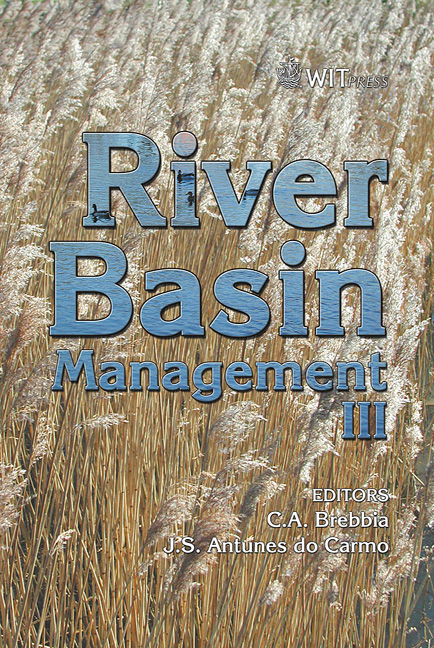Implications Of Rainwater Harvesting In A River Basin Management: Evidence From The Modder River Basin, South Africa
Price
Free (open access)
Transaction
Volume
83
Pages
10
Published
2005
Size
488 kb
Paper DOI
10.2495/RM050251
Copyright
WIT Press
Author(s)
Y. E. Woyessa, E. Pretorius, P. S. van Heerden, M. Hensley & L. D. van Rensburg
Abstract
In a new paradigm shift related to integrated water resources management in the context of a river basin, attention is being drawn to consider the upstream and downstream impacts on the various water use entities. The river basin is increasingly acknowledged as the appropriate unit for analysis and management of water resources, especially as water availability becomes the primary constraint to agriculture. The irrigated agriculture in the Modder river basin, in the central South Africa, draws water from river pools and weirs. However, many small-scale farmers rely on rain-fed farming. A few years ago, the ISCW-ARC introduced a rainwater harvesting technique for these farmers, which is reported to have increased crop yield significantly compared to conventional practices. The research questions were: what is the potential expansion of this technique? and; what will be the implications of this practice on the downstream users if applied on a wider scale? A field survey showed that a fairly rapid spread of the application of the technique can be expected within the scope of home yard size, but no significant spread to community gardens and beyond is expected in the short term because of socio-economic constraints such as poverty, and lack of appropriate tools and basic farming skills. Keywords: rainwater harvesting, river basin, small-scale farmers.
Keywords
rainwater harvesting, river basin, small-scale farmers.





